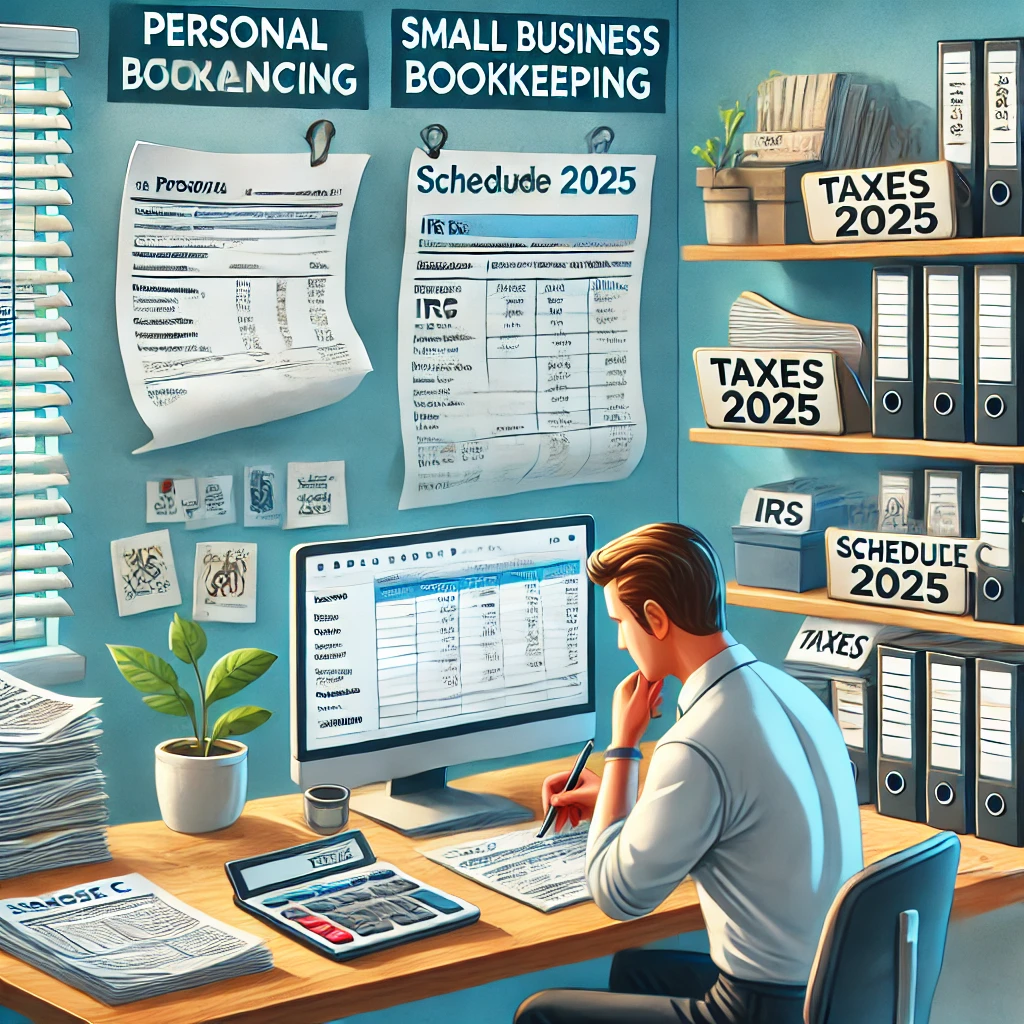Whether managing personal finances or running a small business, effective bookkeeping is key to maintaining financial health and ensuring smooth operations. This article delves into practical tips and organizational strategies to optimize bookkeeping practices for both personal budgeting and small business management.
1. Diligence in Data Accuracy
Accurate and complete financial data is crucial in both personal and business contexts. Regular updates and reviews of your records can help prevent discrepancies and provide a reliable basis for financial decisions and tax preparations.
2. Organizing Financial Documents
For personal and small business finances, adopt a systematic approach to document organization:
- Personal: Use a clear naming convention for your files, such as ‘YYYY-MM-DD – description (payment method) currency and amount’. This helps in maintaining an orderly record of personal expenses and incomes.
- Small Business: Extend this format to include vendor names, which assists in identifying business transactions, such as ‘YYYY-MM-DD vendor name – description (payment method) currency and amount’.
3. Using Spreadsheets for Comprehensive Tracking
Spreadsheets are flexible tools for managing various aspects of finances:
- Personal: Track expenses, income, investments, and even specific logs like mileage for tax-deductible travel.
- Small Business: Use spreadsheets to manage cash flow, inventory, receivables, and payables, ensuring everything is categorized per business needs, such as aligning with IRS’s Schedule C for easier tax filing.
4. Maintaining Digital and Physical Records
Keep both digital and physical copies of all financial documents to safeguard against data loss and ensure easy access during audits or tax season:
- Personal: For cash transactions or minor expenses, make notes and email them to yourself as a backup.
- Small Business: Store contracts, invoices, and receipts both digitally and physically, ensuring they are readily available for financial analysis or compliance requirements.
5. Regular Reconciliation
Ensure that all financial statements, such as bank and credit card statements, are regularly reconciled with your personal or business ledgers to keep your financial information accurate and up-to-date.
6. Investment and Asset Management
- Personal: Track your investments and assets, noting purchases, sales, gains, and losses. This information will be crucial for assessing financial growth and planning tax strategies.
- Small Business: Maintain records of business assets and depreciation schedules, which are essential for financial reporting and tax calculations.
7. Understanding and Managing Taxes
- Personal: Keep abreast of tax regulations affecting personal finances, such as deductions for home office use or health savings accounts.
- Small Business: Comprehend business tax obligations, from payroll taxes to quarterly filings, and consider consulting with a tax professional to ensure compliance and optimize tax liabilities.
Effective bookkeeping practices enhance financial oversight and reduce the likelihood of errors in both personal and business finances. By implementing these strategies, you can achieve better financial stability, meet compliance requirements, and make informed decisions that contribute to long-term success.
Cheers,
Gage
